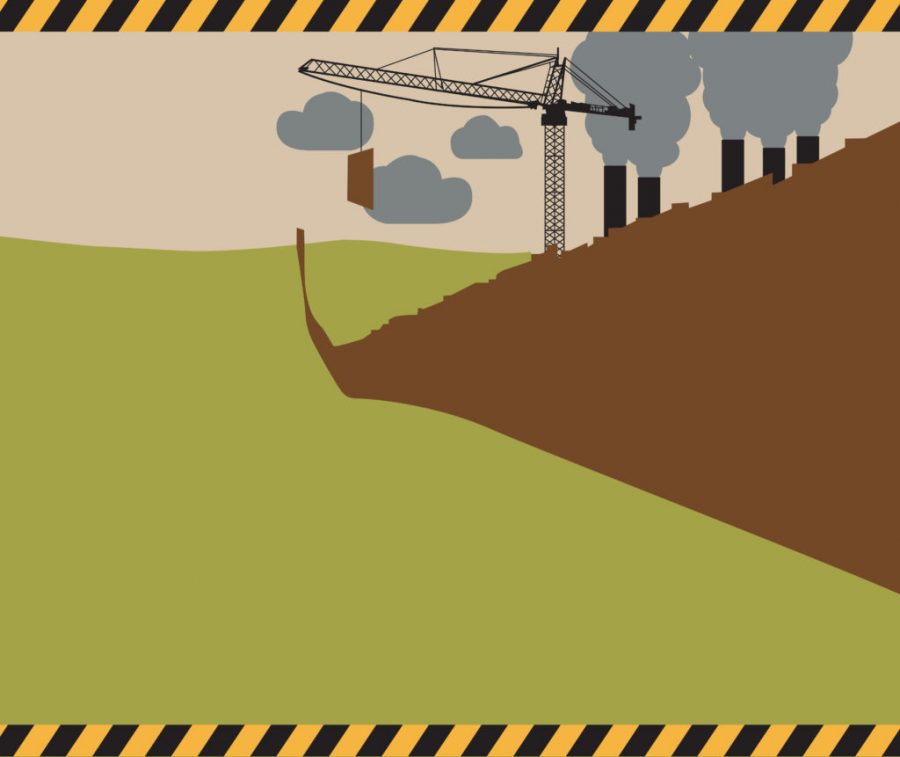Current President Donald Trump has proposed something absurd, and it has been a pillar of his platform since the beginning of his campaign. The great wall of Trump would supposedly curb illegal immigration and drug trafficking from our southern neighbors, as well as compensate for Trump’s huge inferiority complex and satisfy his xenophobic tendencies.
We’ve already seen Trump attempt to enact his insane prejudice via his travel bans so it’s not surprising that he seems to be following through with his plans to construct an actual wall on the border between Mexico and America. He is so sure about the strength and security of the wall against foreign threats that he’s proposed budget cuts to organizations such as the Transportation Security Administration and the Coast Guard, according to an article by Vianne Ilagan of The Christian Post. We could go on and on about the irony, bigotry and idiocy encasing this entire project, but I digress. The truth is that the wall is not going to be effective in any measurable way, and our Trump is not going to be able (nor does he have the right) to completely stonewall all future immigration into the United States. As many have said: “If he builds a wall, we will build a tunnel.”
Human rights and political pragmatism aside, the wall is an ominous figure in the future of other migrants as well. Migrants that aren’t Mexican or even human. They are other animals who call the borderlands home, and whose habitats would be irreparably damaged by the construction of a giant, miles-long concrete wall. Many animals like cougars and brown bears have a range of territory; they are not sedentary, do not live in established cities, and they move around depending on things like climate and food availability.
Since things like climate and food availability often change predictably at different latitudes, many of these big mammals have inhabited a territory that runs North-South. This is easy to understand; many of us have grandparents who winter in Arizona because the Utah climate becomes too harsh in the winter months, but leave Arizona during the unbearable blistering summers. Brown bears and cougars are not much different; they must move as normal temperatures shift in order to survive, or in order to follow their food source. The great wall of Trump would literally bisect the territory of these migrant species. You can imagine that this would devastate populations and have cascading effects on the well being of borderland ecosystems. The little guys, like many endangered frog species, would be demolished by the wall as well because it would permanently scatter already miniscule populations. This wall could cause not only animal extinctions, but also the collapse of surrounding ecosystems. This would eventually affect us humans as well; namely in terms of potable water in the area, and organic material in the surrounding soils. The construction of the wall would also be immediately environmentally strenuous. Essentially, if Trump builds a wall, they can’t build a tunnel. All of this information can be found on an episode of “Quirks and Quarks,” with Bob McDonald, titled “Trump’s ‘Wall’ Will Be Good At Stopping the Flow of Wildlife.”
This should serve as a reminder that everything we do affects others. We should remember that something which might be detrimental to industry, to politics or offensive to our sensibilities might be detrimental to the actual lives of other animals. We must always keep in mind that we live on a planet full of other living ways. We not only share this land with other humans, but with other species as well. We must keep in mind that we are extremely dependent on the well-being of these species and ecosystems for our own species’ future. With any intellectual development such as growth, border security plan, augmentation of industry, we must bear in mind the ways in which these advancements and modifications will operate in the context of our planet, just as much as they may exist in the context of our human society, because the truth is that we can’t have the latter without the former.


